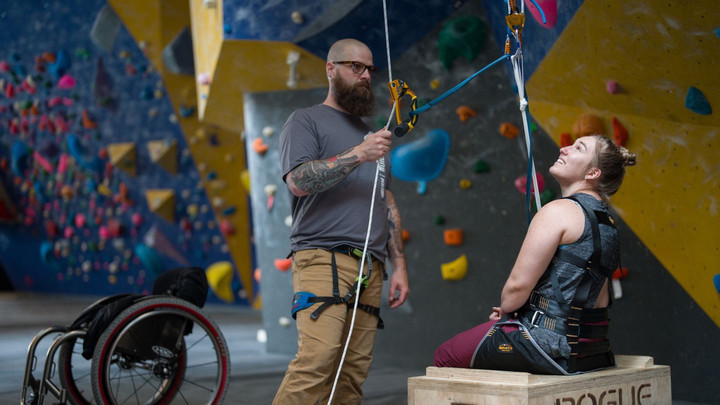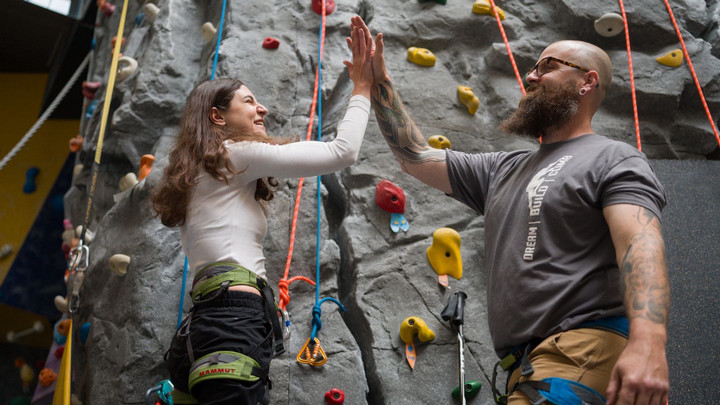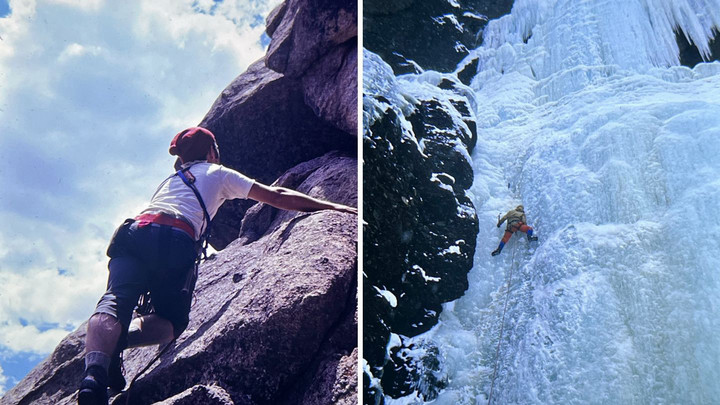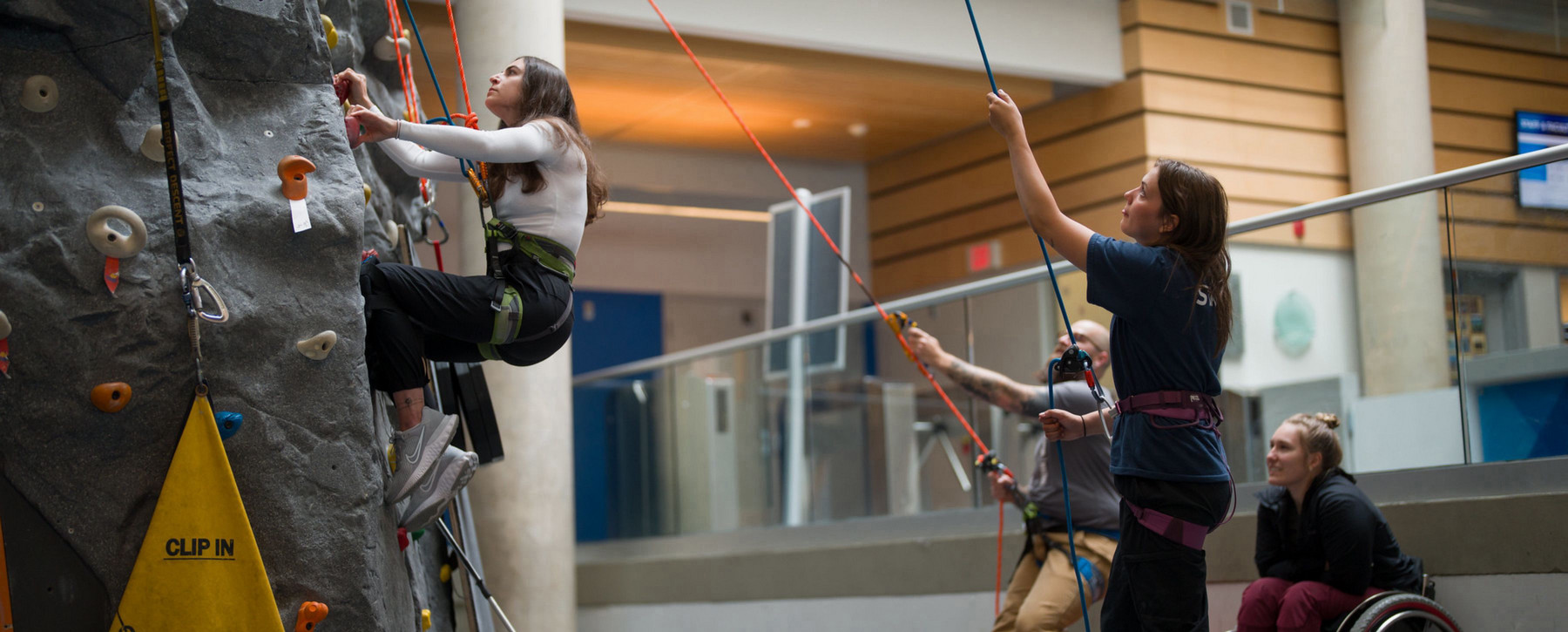Reaching beyond boundaries

Donors are helping remove barriers to climbing at CARSA so that people of all abilities can experience the potential for personal growth and social benefits of this challenging activity.
As she picks her way up the wall, Dana Arafeh’s thoughts are focused solely on the physical and mental challenge ahead of her. “It’s one of the rare activities that, when I’m engaged in it, I’m not thinking about anything else. I’m just thinking about the terrain,” she says. “That’s what is so beautiful about it. I’ve gotten the physical activity, but I also feel so zen.”
Dana’s attended the adaptive-climbing program at the University of Victoria since it began in September 2023. Every week, she stretches and strengthens her body, improves her climbing skills, and socializes with other climbers. Dana says feeling a part of the UVic climbing community has brought her a lot of joy. “The fact that it’s free is also a big deal for me,” she adds.
Thanks to generous donor support, all UVic inclusive recreation programs, which also include soccer and field-hockey programs, are offered at zero cost to participants and are open to community members from across Greater Victoria.
"Anyone who defines themselves as having a barrier is welcome to join us," explains Clinton Thomas, the climbing program coordinator at the Centre for Athletics and Special Abilities (CARSA) who started the adaptive program. Clinton’s team of instructors are trained to work with people with a wide range of cognitive and physical abilities, using specialized, purpose-built equipment, such as sit harnesses, pulleys, gripping aids, pull-up bar ascenders, padding, prosthetic climbing feet and more.
A donation from an experienced climber
One of the donors who supports the program is former recreational climber Gary Schaecher. Gary was inspired to give after seeing the program in action. His own experience running outdoor programs for troubled youth and adult offenders showed him the powerful effect climbing can have on people.
“It expands their horizon of what they can do,” says Gary. “Once a person experiences that growth, they can apply it to other areas of their lives.”
Clinton observes this too, especially as participants can track their progress weekly. “One climber, who used to climb one or two routes in a session, climbed 11 routes the other day,” says Clinton. “For many participants, climbing is not just a physical activity, it’s an outlet. They find connection and the experience of a shared activity… it can turn into something they love.”
Clinton says his team of instructors enjoy and benefit from the experience. “An amazing thing happens when people start working in the adaptive program. Everyone’s needs and success points are totally different, so you have to shift and adapt, but the moments where you do it properly you get to see the results and the joy in that climber.”

The team’s expertise and level of engagement contributes greatly to Dana’s positive experience. “What’s so unique about the program is that the staff know how to support adaptive climbers,” she says. “We talk about my challenges and adapt after every climb and we’re always goal-setting together.”
She says it’s rare to find regular programming as adaptive sports are usually offered as one-off ‘have a go’ type sessions. Clinton heard the same comments from physiotherapists and parents of children with disabilities and intentionally made a six-week, continuous program for kids to learn to climb. “The goal is to help them start growing and progress in the sport. Not just try it and walk away,” he says. The kids' climbing program is currently full with a long waitlist.
A team approach

Thanks to Gary’s gift, the climbing wall has several new adaptive wall holds and will soon have a specially engineered anchor to prevent climbers using ascenders from scraping, or getting bounced off, the wall.
Adaptive climbing relies on a team approach—on the shared trust, problem-solving and dedication of climbers and assisters. UVic donors are another essential part of that team, helping fund training, equipment, wall modifications and participant fees. “With this support, we can adapt our equipment and our approach,” Clinton says. “My end vision is that anyone on any day can come in this gym and climb.”
"I just hope young people with physical disabilities are going to get the same opportunities that other people get and that they can do things they never thought they could do. They can apply that to other areas of their lives.”
—Gary Schaecher, Donor

